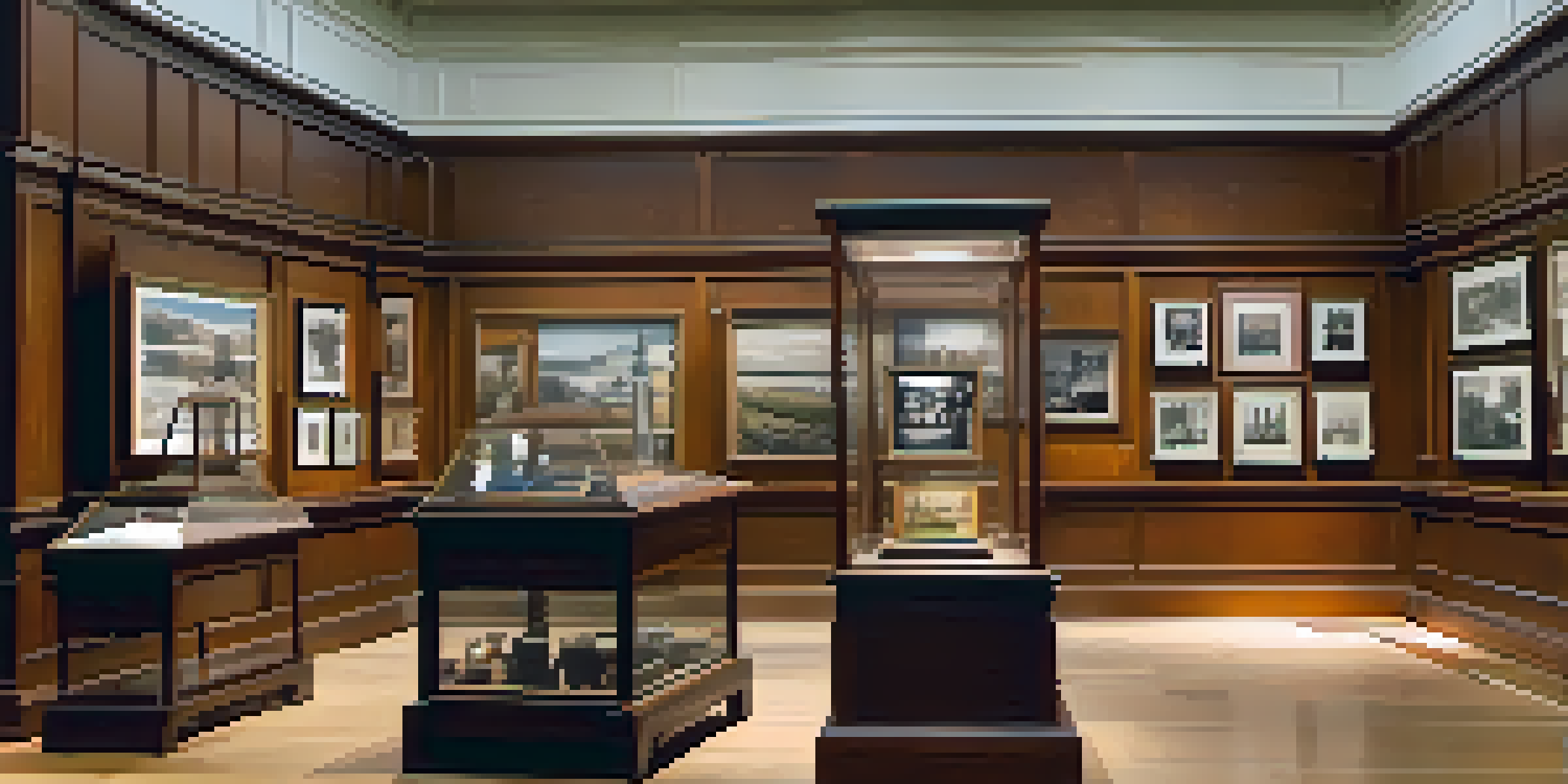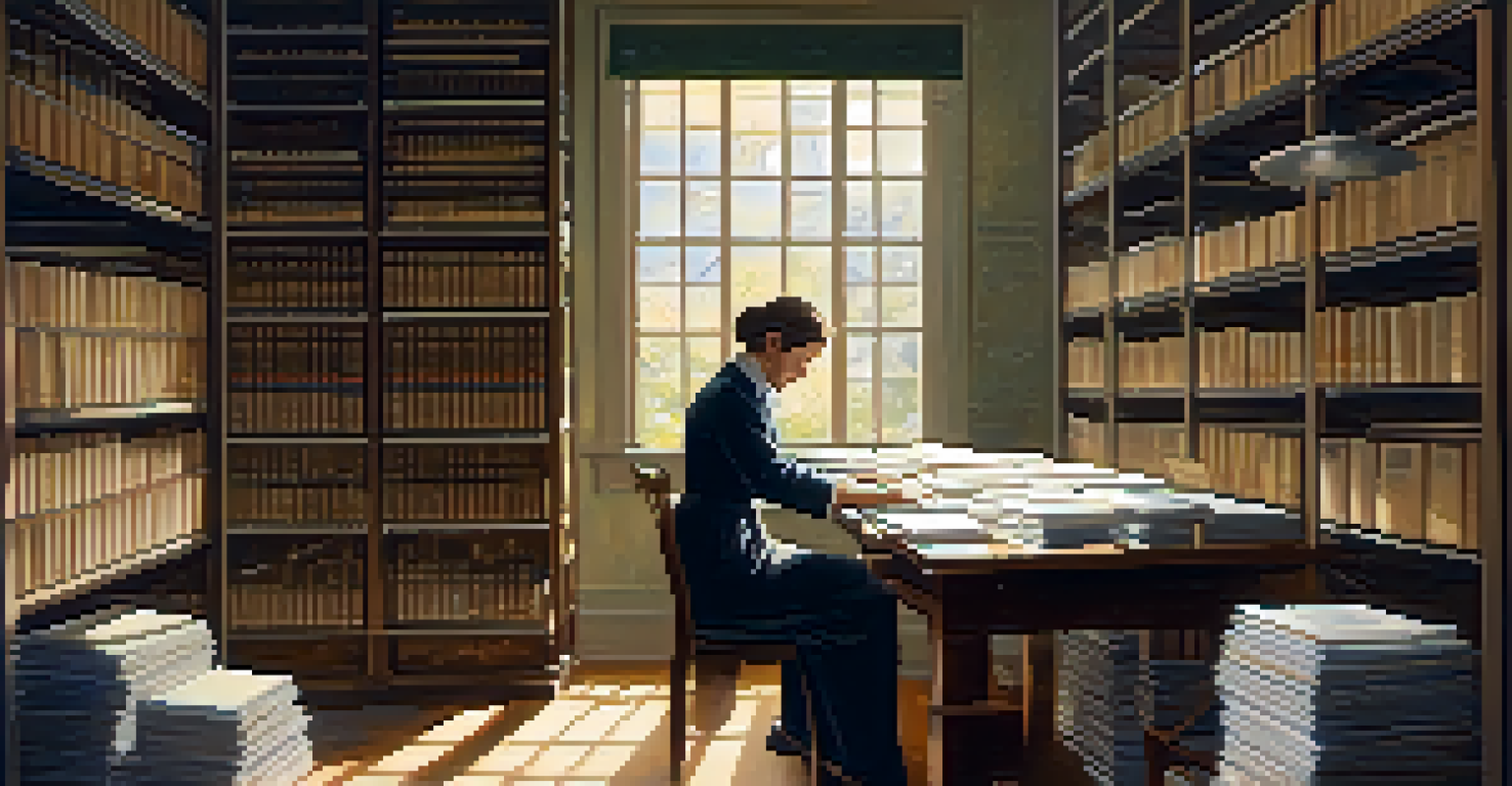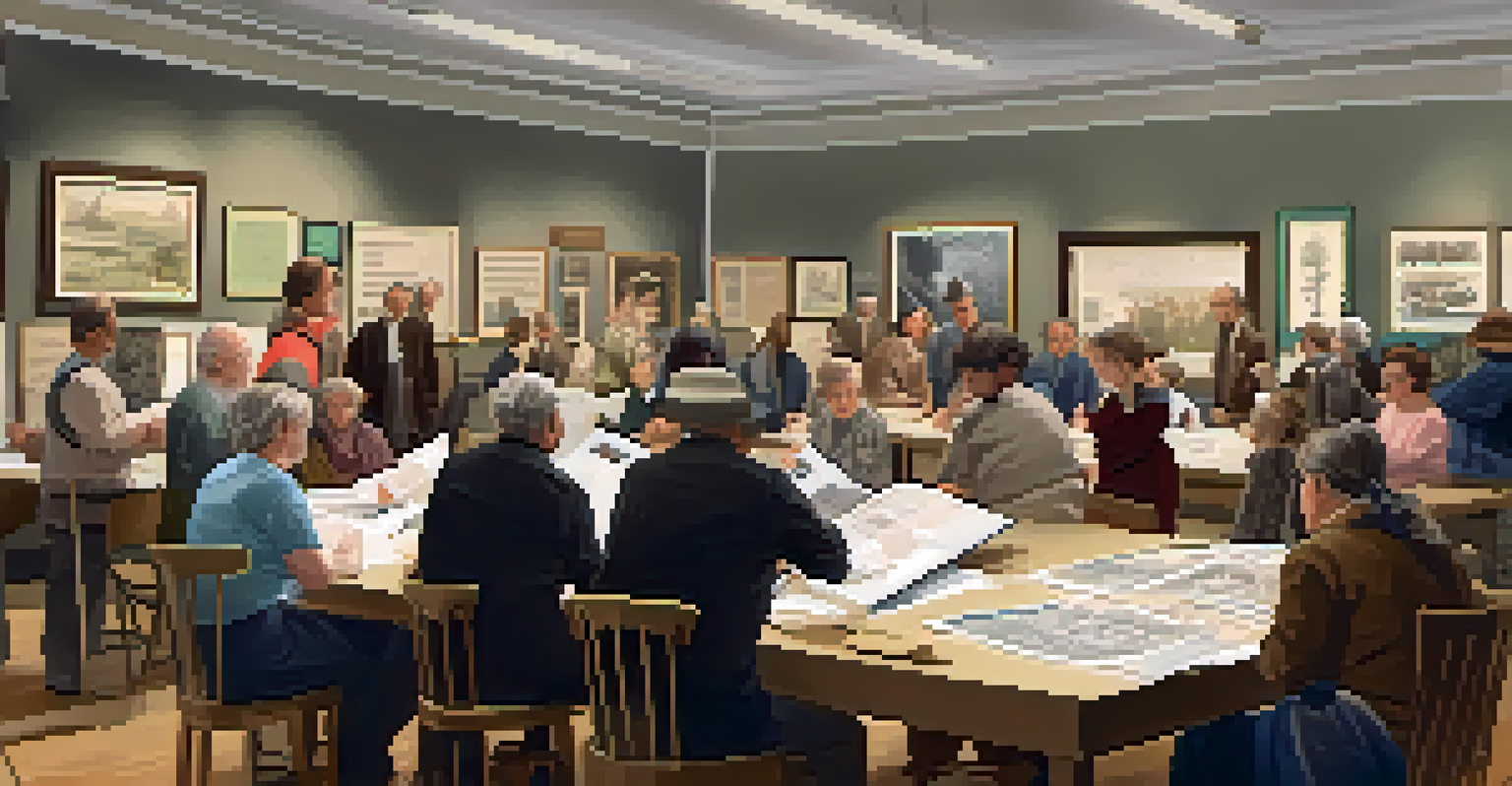Exploring Museums and Archives for Family History Research

Why Museums and Archives Matter for Family History
Museums and archives are treasure troves of information, offering a unique glimpse into our past. They house collections that can enrich your family history research, providing context and depth to the names and dates on a family tree. By exploring these resources, you can uncover stories that might be lost in time, turning mere facts into vivid narratives.
The past is a foreign country; they do things differently there.
Imagine finding an old photograph of your great-grandparents at a local museum, or a letter in an archive that reveals their dreams and struggles. These artifacts not only connect you with your ancestors but also foster a deeper understanding of their lives and the times they lived in. This insight adds a personal touch to your family history, making it more than just a collection of names.
Moreover, these institutions often have knowledgeable staff and volunteers who can guide your research, helping you navigate through their collections. They may also offer workshops and programs specifically designed for family historians, making your visit even more productive.
Types of Resources Available in Museums
Museums often contain various resources that can aid your family history research. From artifacts and photographs to documents and oral histories, each item can provide invaluable insights into your ancestors' lives. Additionally, many museums have special exhibits dedicated to local history, which can help you understand the context in which your family lived.

For instance, a local history museum might feature a display about immigration patterns that affected your family. This could lead you to discover when your ancestors arrived, what motivated them to come, and the challenges they faced. Such details can enrich your understanding and appreciation of your family's journey.
Museums Enrich Family History
Exploring museums provides unique artifacts and stories that deepen our understanding of ancestors' lives.
Furthermore, some museums digitize their collections, making them accessible online. This means you can start your research from the comfort of your home, browsing through thousands of records and photographs before planning a visit.
Exploring Archives: A Goldmine for Family Historians
Archives are often seen as the backbone of family history research, housing a wealth of primary sources like birth and death records, marriage licenses, and census data. These documents can provide concrete evidence of your family’s existence and movements through time. They are essential for verifying the information you've gathered from other sources.
History is not a burden on the memory but an illumination of the soul.
When you step into an archive, you may feel like an explorer on a quest for hidden treasures. The thrill of discovering a birth certificate or an old newspaper clipping can be exhilarating. These records help paint a clearer picture of your ancestors’ lives, often revealing surprising connections or previously unknown relatives.
However, navigating archives can be challenging due to their organization and sometimes strict access policies. It’s wise to prepare ahead of time by checking their catalog or online databases, which can save you time and help you focus on the most relevant materials for your research.
Building Connections with Local Historians
One of the most valuable aspects of visiting museums and archives is the opportunity to connect with local historians and fellow researchers. These individuals are often passionate about history and can share insights that you might not find in books or online. Engaging in conversations can spark new ideas and lead you to resources you hadn't considered.
For instance, a local historian might know about unpublished family histories or community records that could be pivotal for your research. Such connections can also foster a sense of community, making your journey into family history feel less solitary and more collaborative.
Archives Are Research Goldmines
Archives house essential documents like birth and marriage records, crucial for verifying family history.
Many museums and archives also host events or workshops, creating further opportunities for networking. By attending these gatherings, you can meet others who share your interests and possibly find a research partner with complementary skills.
Preserving Your Findings: The Role of Museums
As you gather stories and artifacts related to your family history, consider the role museums play in preserving these findings. Many institutions are dedicated to safeguarding local heritage, and they often provide guidance on how to properly care for family documents and heirlooms. This ensures that future generations can also appreciate and learn from these treasures.
You might even think about donating copies of your research or artifacts to a local museum. This not only helps preserve your family's legacy but also contributes to the collective memory of the community. Such acts can create a lasting impact and inspire others to delve into their family histories.
Additionally, museums often provide resources on how to create your own family history exhibits. This can be a rewarding way to share your findings with family and friends, offering a tangible way to celebrate your heritage.
Utilizing Online Resources and Digital Archives
In today’s digital age, many museums and archives have embraced technology, making it easier than ever to conduct family history research online. Digital archives offer access to a wealth of documents, photographs, and databases that you can explore from home. This is especially beneficial for those who may not be able to visit in person.
For example, websites like the National Archives or local historical societies have digitized numerous records, allowing you to search for birth certificates, military records, and more with just a few clicks. These resources can save you time and provide leads that guide your physical visits to museums and archives.
Connect with Local Historians
Engaging with local historians at museums and archives can uncover valuable resources and foster collaboration.
Moreover, many museums offer virtual tours and online exhibitions, which can inspire you and provide context for your family's history. Engaging with these digital resources can be an excellent starting point before you dive deeper into physical locations.
Tips for Making the Most of Your Visits
Before heading out to a museum or archive, it's essential to prepare in order to make the most of your visit. Start by creating a list of specific questions or topics you'd like to explore. This will help you stay focused and maximize your time at the institution. A little research on what the museum or archive offers can go a long way in ensuring your trip is fruitful.
Also, consider reaching out to the staff in advance. They can guide you to specific collections that align with your family history research, saving you time once you're there. Many institutions also have guidelines on how to access resources, which can be helpful for first-time visitors.

Lastly, don’t forget to take notes or photographs of your findings. Documenting what you discover will help you remember details and make connections later on. The stories you gather during these visits can enrich your family's narrative, making your research journey all the more rewarding.